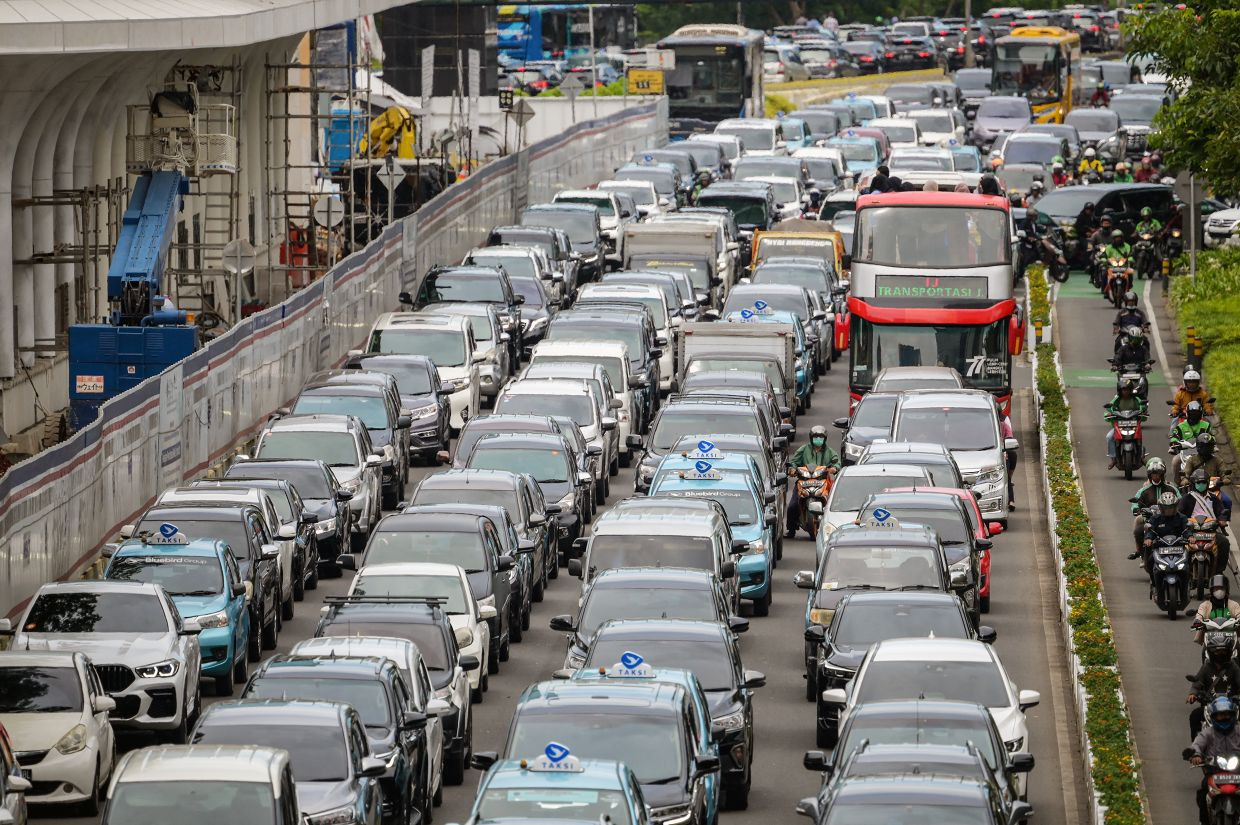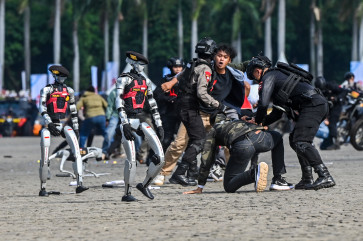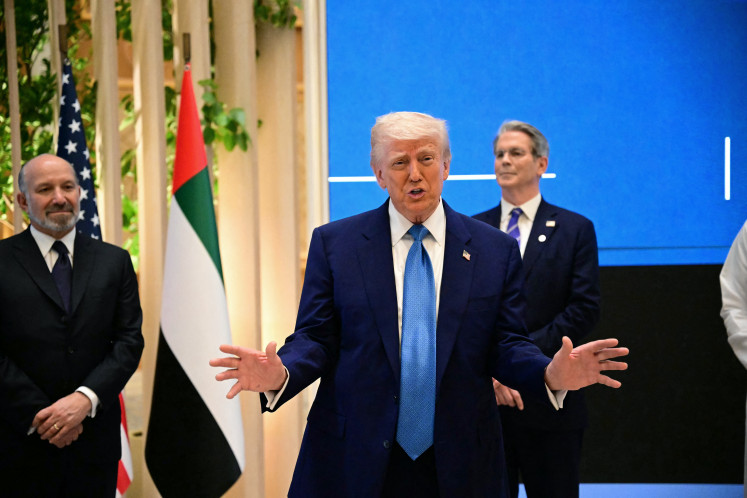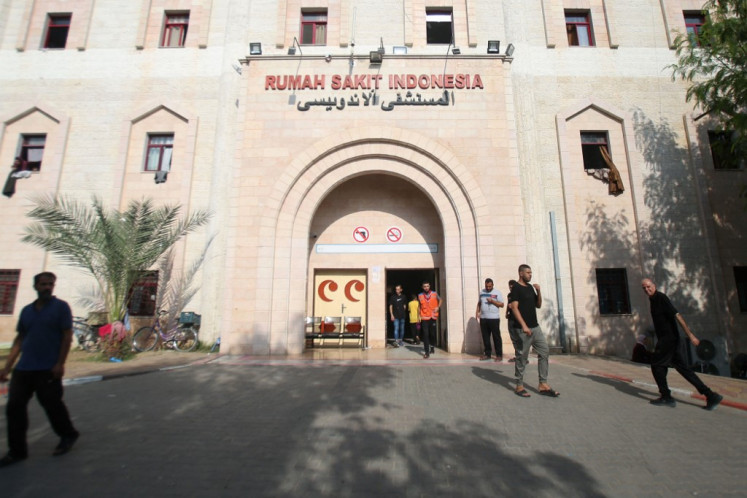Popular Reads
Top Results
Can't find what you're looking for?
View all search resultsPopular Reads
Top Results
Can't find what you're looking for?
View all search resultsTransportation council wants ERP in Jakarta to include all motorists
The Jakarta Transportation Council (DTKJ) hopes that the electronic road pricing (ERP) policy will be implemented for all types of motorists.
Change text size
Gift Premium Articles
to Anyone
D
espite plans by the Jakarta administration to grant on-demand motorcycle taxis an exception to the proposed electronic road pricing (ERP) policy, the Jakarta Transportation Council (DTKJ) hopes that the scheme will be implemented for all types of motorists.
“The Jakarta Transportation Agency might have its own considerations, but we hope that all motorists will be included in the regulation,” DTKJ head Haris Muhammadun said on Saturday, as quoted by Tempo.co.
Haris’ statements came as a response to the Jakarta Transportation Agency, which is considering granting an exemption to app-based ride-hailing services, known as ojol, after thousands of their drivers marched on City Hall, protesting against the planned implementation of the ERP.
“Online ride-hailing services won’t be charged with the ERP. [...] We will coordinate with Jakarta City Council [and amend the draft regulation],” transportation agency head Syafrin Liputo told protesters on Wednesday.
The planned exemption marks a drastic change after Liputo insisted on Jan. 25 that ojol drivers were not categorized as public transportation, hence they would not be exempted from the ERP.
Given the specific challenges in implementing the ERP in Jakarta compared with Singapore and London, two cities that have already enforced a similar policy, Haris said that Jakarta must implement the road pricing scheme in stages, all the while listening to the public’s input on the issue.
“The city must provide alternative solutions to motorists who will be negatively affected by the new ERP policy,” Haris said. One of the possible solutions, he added, was by improving the quality of public transportation in Jakarta before the ERP could be implemented wholesale for all of Jakarta’s motorists.
Read also: Opinions divided over Jakarta’s electronic road pricing initiative
According to a current iteration of the draft regulation, the ERP system will charge cars and motorcycles for using 25 of Jakarta’s main thoroughfares. The fare for driving along the Jl. Sudirman arterial route, which spans South and Central Jakarta, for instance, could range from Rp 5,000 (33 US cents) to Rp 19,000 for a one-way trip.
The ERP initiative is being floated as one of several possible solutions to the city’s perennial congestion problems, which have recently resurfaced as the city gradually moves on from the COVID-19 pandemic. In the short term, interim Jakarta governor Heru Budi Hartono also has plans to close several U-turns to improve traffic flow in Jakarta.
Data from TomTom Traffic Index shows that congestion in Jakarta has largely returned to levels seen in 2019 after a decline over the past three years because of the pandemic.
Read also: Jakarta’s traffic problem re-emerges as congestion bounces back to pre-pandemic levels
Transportation observers are unconvinced that the ERP will provide an immediate solution to the capital’s snarled-up traffic.
And looking at how the odd-even policy, alternate-day travel based on license plate numbers that started in 2016, has failed to make a significant impact on traffic, they said the ERP alone would not be enough.
Jakarta, instead, must find a way to make existing public transportation options attractive to private vehicle users, particularly for commuters from satellite cities going into the capital, they said.
Jakarta’s current fixation with the ERP can be traced back to 2007, when then-governor Sutiyoso first considered adopting the system as an alternative to the largely unsuccessful “three-in-one” carpooling policy. The capital revoked the policy and replaced it with the odd-even traffic rule in 2016 during the administration of then-governor Basuki “Ahok” Tjahaja Purnama.










